In today's fast-paced job market, negotiating your start date can feel a bit daunting, but it's key to ensuring a smooth transition into your new role. Open and honest communication with your future employer not only demonstrates your professionalism but also shows your eagerness to join the team. With the right approach, you can find a mutually beneficial solution that works for both you and the organization. Ready to dive into some effective tips on how to navigate this conversation?

Professional tone and language
Job application letters often require clarity and professionalism. The negotiation of a start date, for instance, provides an opportunity to express enthusiasm for the role while ensuring the timeline aligns with personal commitments. For example, a candidate may prefer a start date of January 15 rather than the initially proposed January 1, to accommodate a transition between jobs. A clear expression of appreciation for the offer and a concise explanation of the request illustrate respect for the employer's timeline while also asserting the candidate's needs. Furthermore, emphasizing flexibility in the proposed start date reinforces the commitment to the role and the organization. A professional tone conveys confidence, which is crucial during negotiations.
Clear subject line
Subject: Request to Discuss Job Start Date for [Job Title] Position I am excited about the opportunity to join [Company Name] as a [Job Title] and contribute to [specific projects or goals related to the role]. I would like to discuss the proposed start date of [initial start date], as I have existing commitments that may require adjustment. My preferred start date would be [your preferred start date], allowing me to transition smoothly into this new role. Thank you for your understanding, and I look forward to your response.
Reason for negotiation
The negotiation of a start date often arises from personal obligations, such as the completion of existing responsibilities or a planned relocation, which may require time to ensure a smooth transition. For example, professionals may need to fulfill a notice period of two weeks to four weeks at their current job, or they might have prior commitments such as family events, vacation plans, or relocation logistics to manage. These considerations are crucial in establishing a start date that accommodates both the new employer's timeline and the candidate's availability, ensuring an organized onboarding process.
Proposed start date
Proposed start dates can significantly influence the negotiation process in a job application. Many candidates suggest a starting timeframe that aligns with personal availability, often ranging from two weeks to one month after receiving an offer. Organizations like Google or Facebook frequently encounter new hires requesting flexibility due to prior commitments or relocation needs. Clear communication regarding the proposed start date can foster mutual understanding and ensure a smoother onboarding process for both candidates and employers.
Appreciation for the opportunity
Job applicants often face the crucial task of negotiating their start date after receiving a job offer. Expressing gratitude to the employer sets a positive tone for the negotiation. Show appreciation for the offer, highlighting excitement about the position and the company, such as mentioning the organization's reputation, values, or project involvement. Then, address the desired start date, providing valid reasoning for the request, such as current employment commitments, relocation needs, or personal circumstances, while demonstrating eagerness to join the team. Keep the tone respectful and flexible, indicating willingness to discuss options that work for both parties, ultimately reinforcing professionalism and enthusiasm for the role.

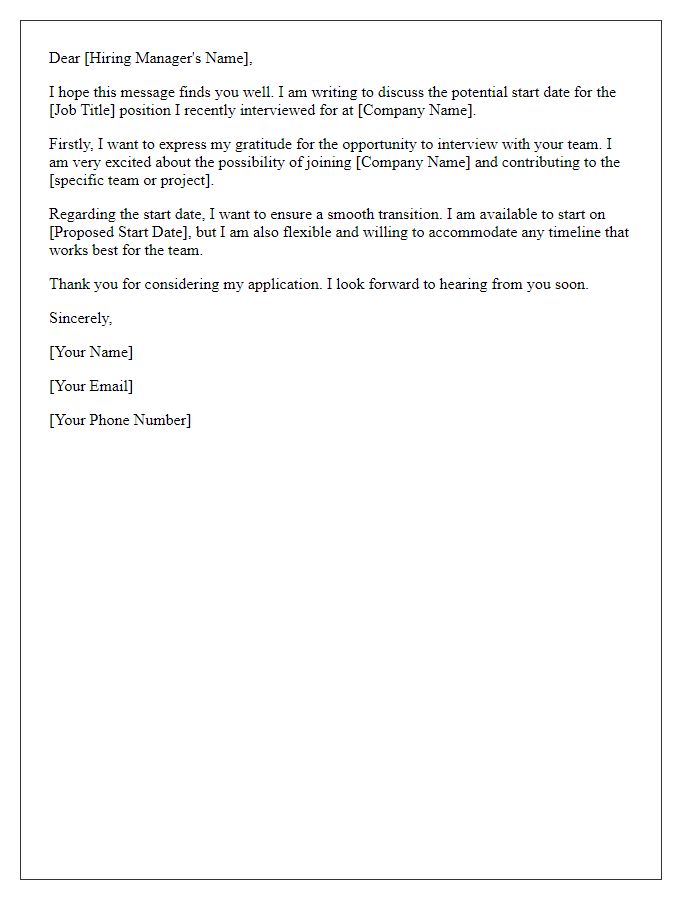
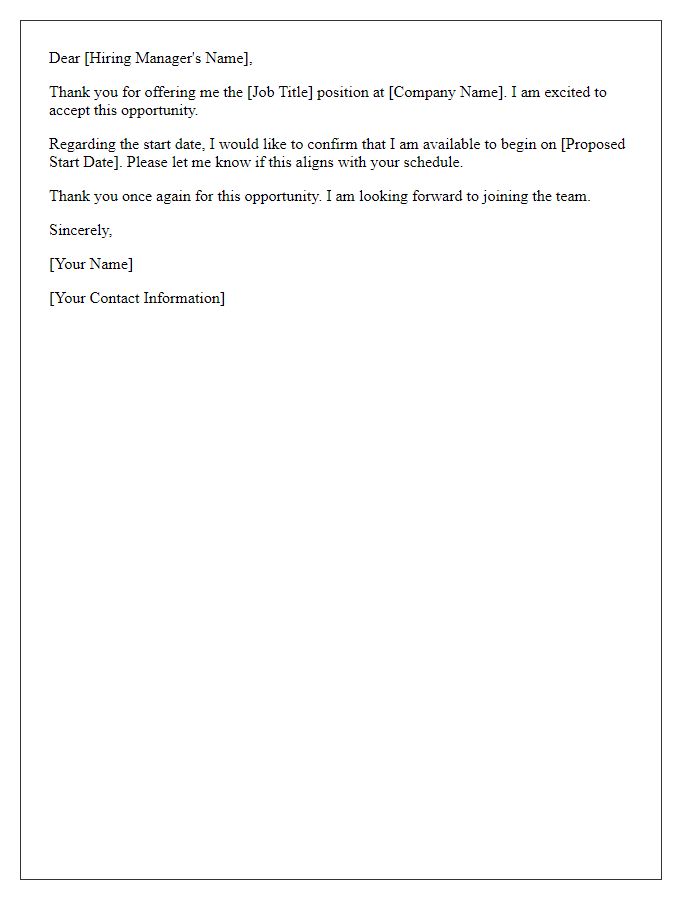
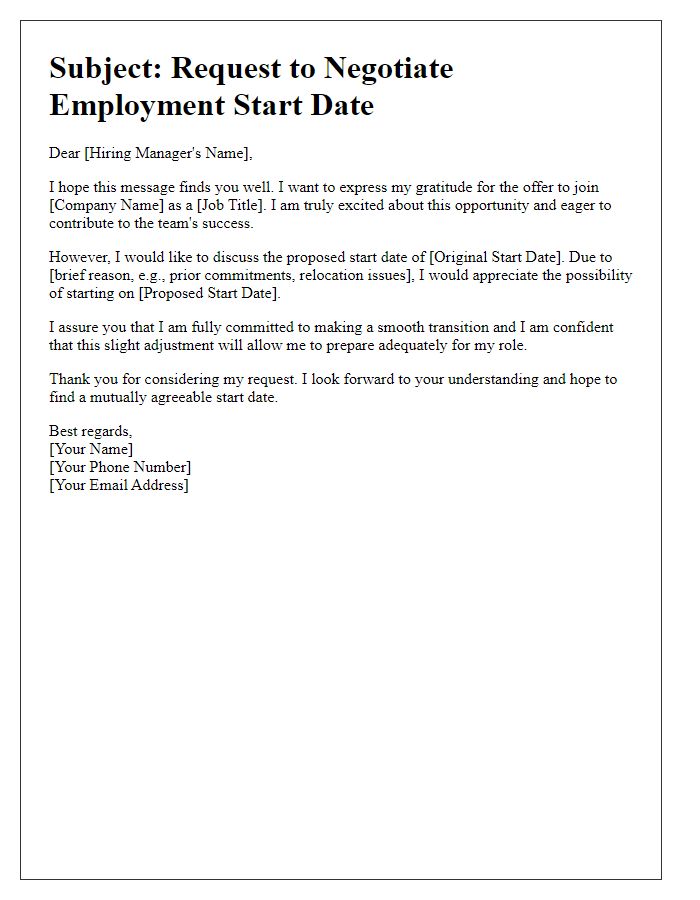
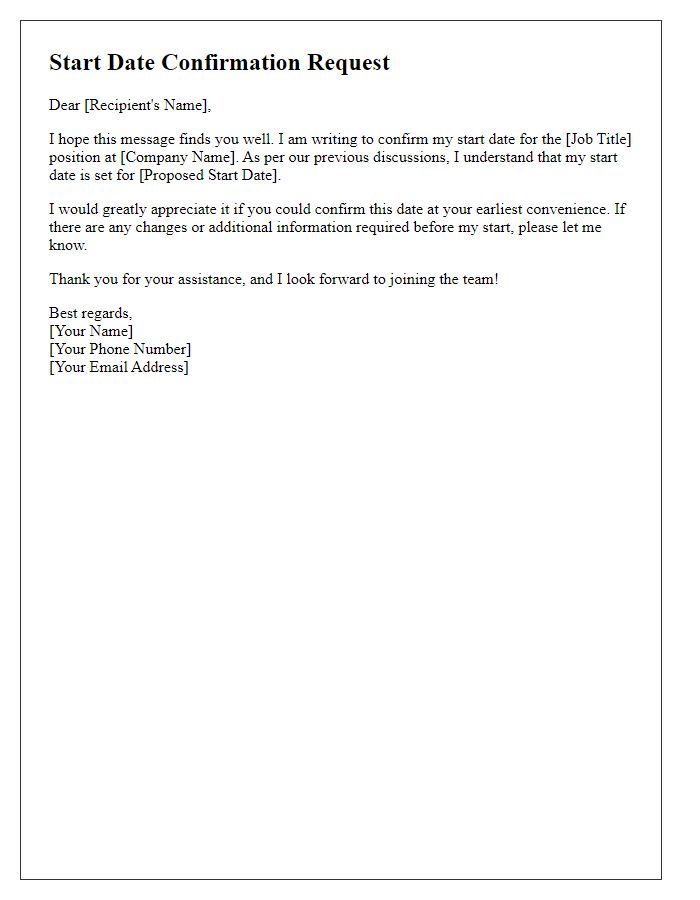
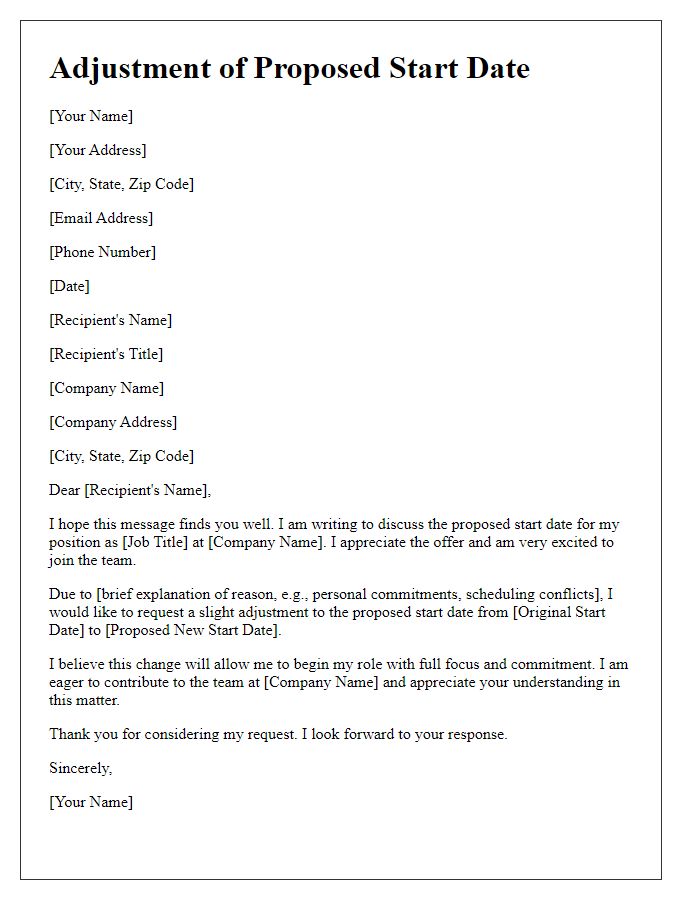
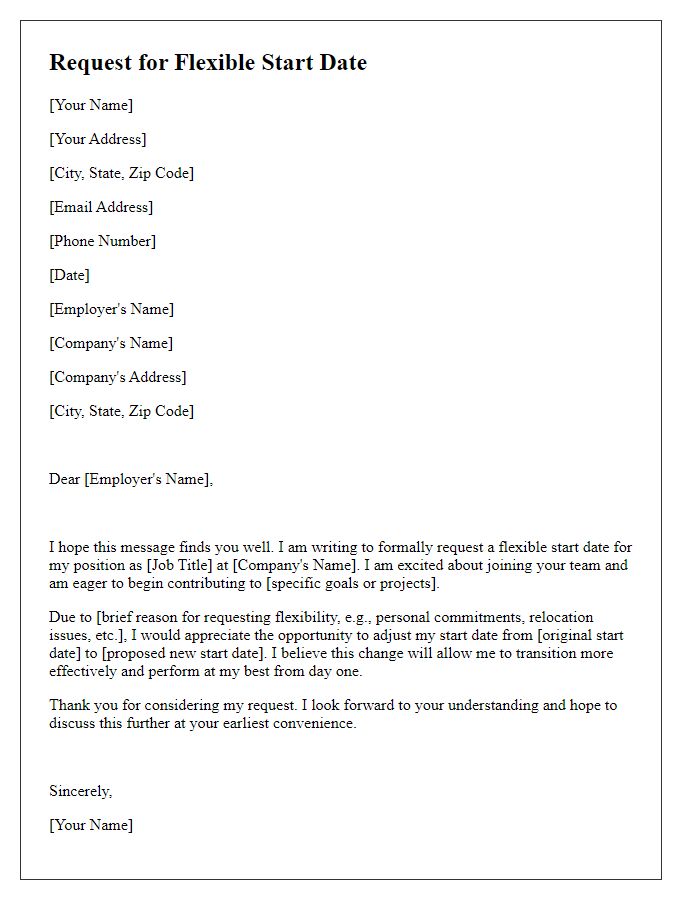
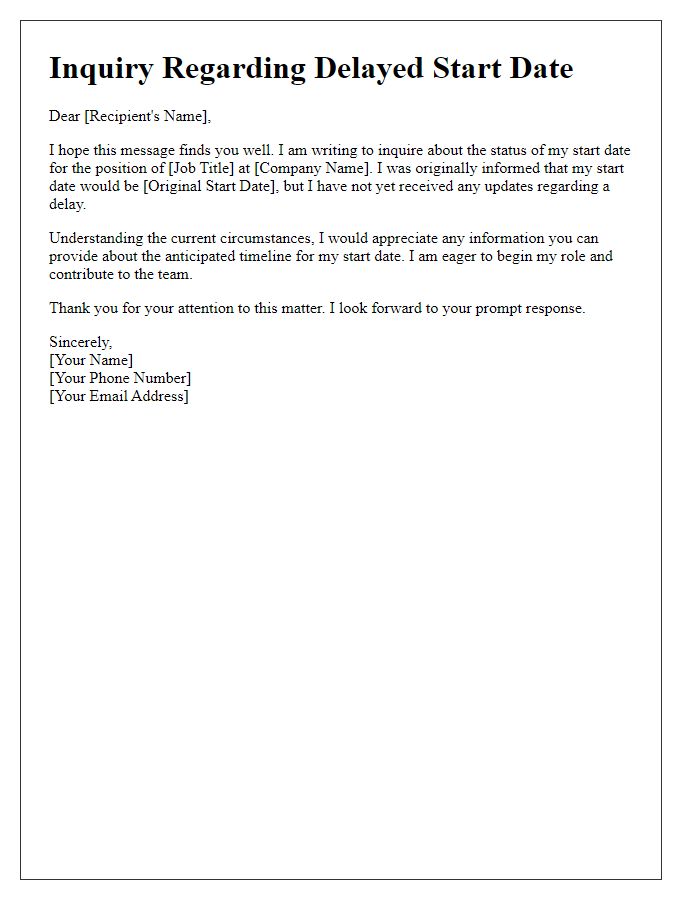
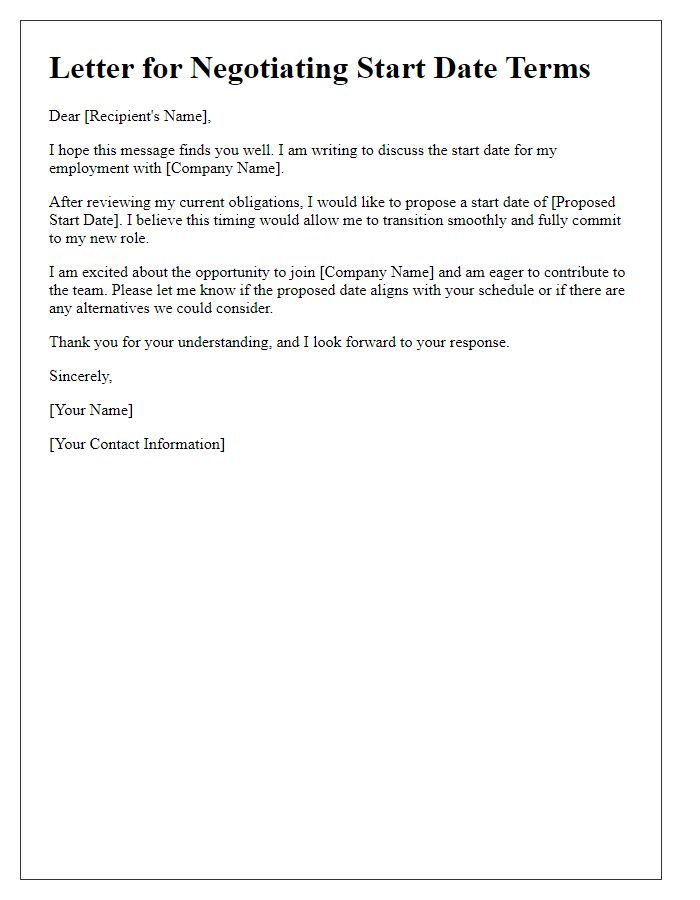
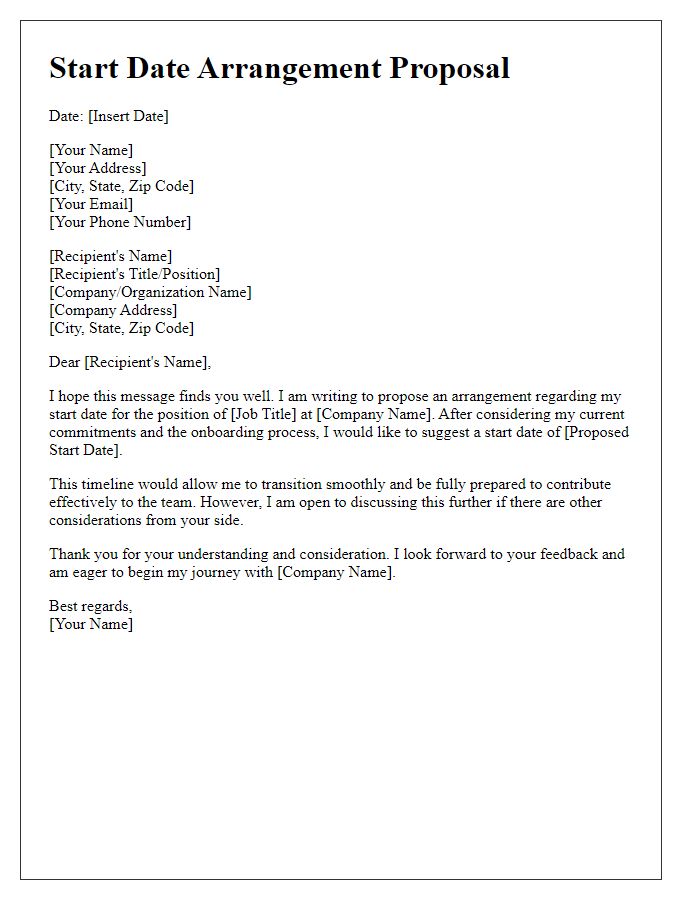
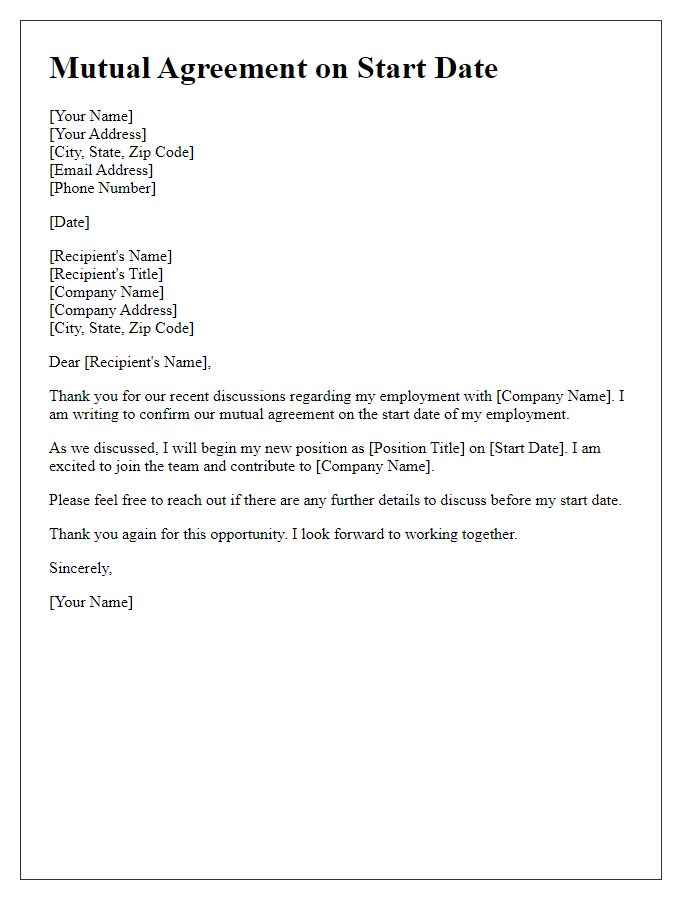


Comments